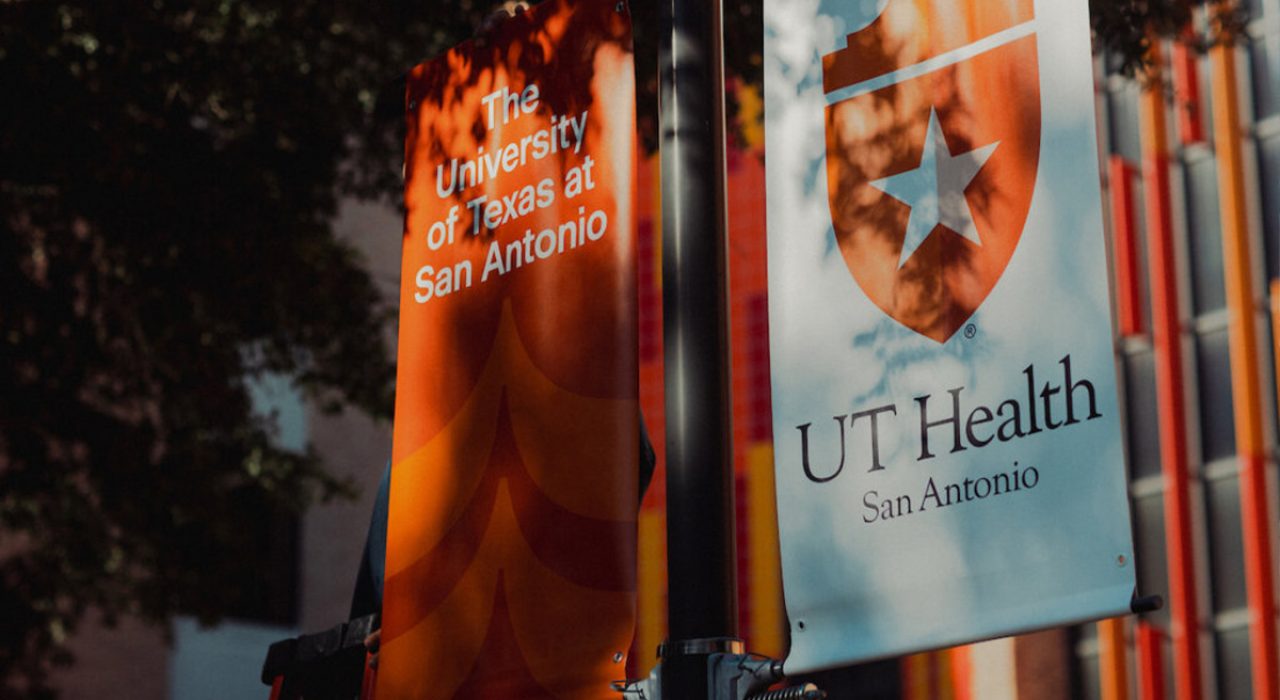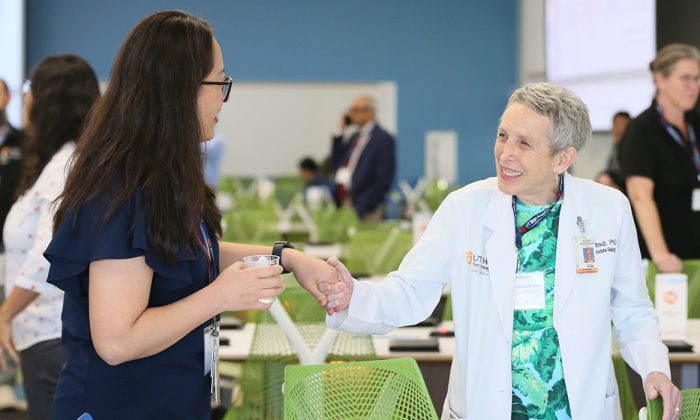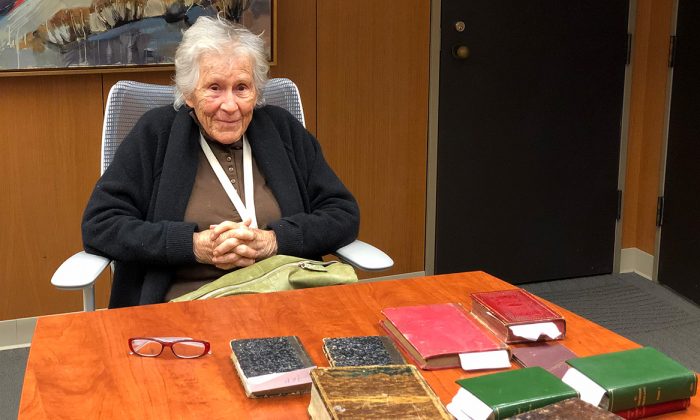When the new, unified University of Texas at San Antonio was introduced to the public, it brought with it an extraordinary advantage — an alumni network of highly skilled health professionals who not only train at the highest level but also choose to stay in Texas.
Their decision to build their careers locally strengthens the state’s healthcare workforce, expands access to exceptional care and ensures that communities across Texas benefit directly from the talent and expertise nurtured at UT San Antonio.
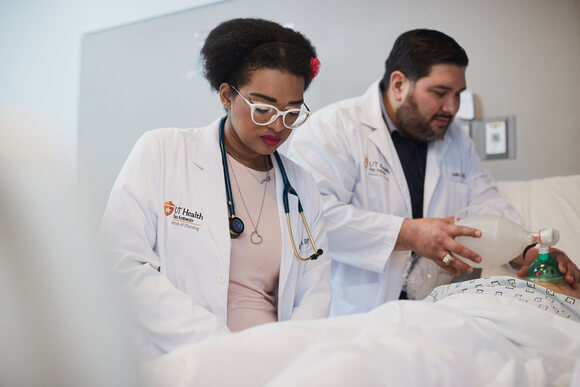
Most graduates from the university’s six health professional schools, located at its Health Science Center, choose to remain in Texas after completing their degrees. This fact is a point of pride, but more importantly, it’s a lifeline for a state facing critical shortages in nearly every health profession.
In Texas, more than 80% of counties are designated mental health shortage areas, and about 40% fall short of meeting primary care needs, which affects over 6 million residents. According to the Texas Health Improvement Network, shortages extend across medicine, nursing, dentistry and allied health as well.
Retaining graduates in Texas is essential to closing these gaps.
At UT San Antonio, 60% of the 2025 class of new physicians from the Joe R. and Teresa Lozano Long School of Medicine remained in Texas for residency training.
The rates are similar for graduates of other health professions who remain in the state:
- 94% of Bachelor of Science in Nursing graduates
- 88% of doctoral-level nursing graduates
- 64% of dental graduates
- 90% of School of Health Professions graduates, including respiratory therapists, physician assistants and speech-language pathologists
These rates are helping ensure that thousands of practice-ready professionals enter the Texas workforce every year.
“Graduate retention is one of the most meaningful ways we fulfill our mission to serve the public good,” said Francisco G. Cigarroa, MD, UT San Antonio’s senior executive vice president for health affairs and health system. “When our exceptionally trained physicians, nurses, dentists, allied health professionals, scientists and public health leaders choose to remain in Texas, it means more families receiving timely, high-quality care close to home. It is a direct expression of our commitment to advance health and well-being for the communities we are privileged to serve.”
Prepared to lead
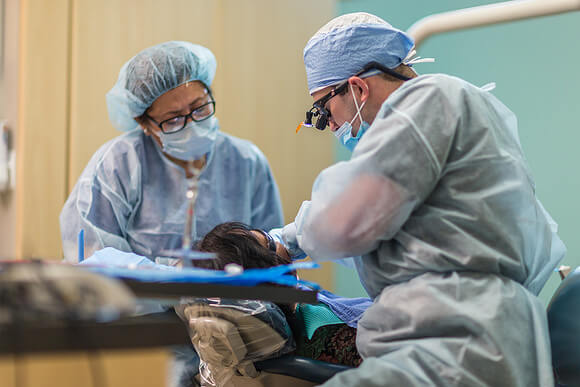
Graduates don’t just stay in Texas; they are ready to lead. Students, residents, fellows and other trainees complete rotations in regional hospitals, community clinics, military facilities and rural health sites, gaining experience with patients across varied populations.
This experience instills both deep expertise and a steadfast commitment to the university’s mission, preparing them to serve with compassion and excellence in every community they are called to support.
National exam results confirm their readiness. In 2025, Doctor of Physical Therapy graduates earned a 98% board pass rate; nursing graduates achieved a 95% National Council Licensure Examination (NCLEX) first-time pass rate, and the School of Dentistry celebrated a 100% first-time pass rate on national board exams — all higher than the national average.
These results, paired with faculty leadership and innovation that produces some of the nation’s top-ranked medical, nursing and allied health programs, including the No. 1 dental school in Texas, demonstrate that UT San Antonio graduates enter the workforce with exceptional skills and confidence.
Local education, local impact
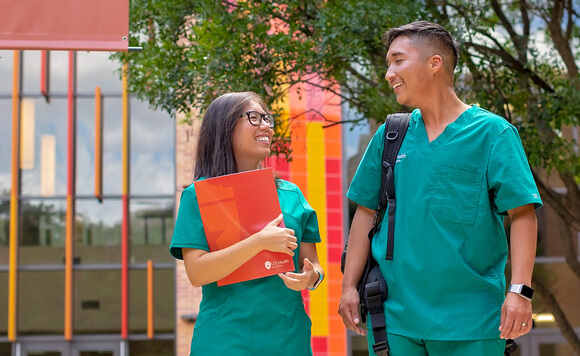
With more than 2.5 million patient visits each year across its more than 120 specialty and subspecialty practices, UT Health San Antonio, the academic health center and health system of UT San Antonio, is the largest physician group in South Texas.
The clinical practice of the School of Dentistry, UT Dentistry, alone provides 123,000 patient visits annually across 18 clinics. Dental students also serve in community-based sites throughout the region, improving community health and tying students to the people and places they choose to continue serving after graduation.
The impact extends beyond healthcare. Nearly half of UT San Antonio’s undergraduate students — many with the ambition to advance into health professional programs — are Pell Grant recipients, a marker of the university’s national standing in advancing social mobility.
Combined with its academic health center’s strong graduate retention, the unified UT San Antonio produces professionals who improve both health outcomes and economic stability for Texans.
Smart investment for Texas
Retaining graduates is also good business. UT Health San Antonio contributes to the local $44.1 billion healthcare and biosciences sector, employing more than 9,700 people with an annual expense budget of $1.67 billion.
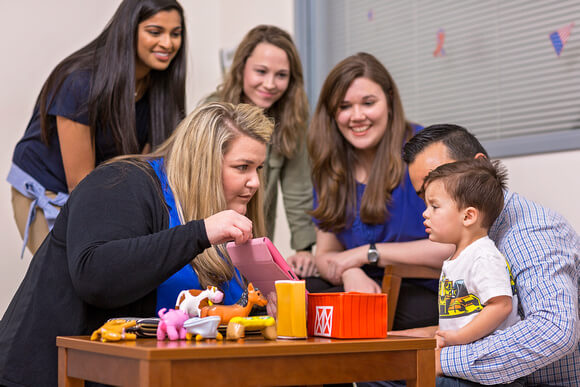
According to a report by the Association of American Medical Colleges, each physician supports an average of 17 jobs through direct and indirect economic activity, such as medical supply companies, housing and retail. One in every five jobs in San Antonio is healthcare and bioscience related.
Recruiting healthcare professionals from outside the state can be costly and time-consuming, especially for rural and under-resourced communities.
“The retention of locally trained health professionals is vital to meeting the increasing demand for care across our rapidly growing region,” Cigarroa said.
“When our graduates choose to remain in Texas, we not only strengthen the pipeline of talent but also work to ensure that communities have access to the physicians, nurses, dentists and allied health providers they urgently need,” he added. “This commitment allows us to focus on what matters most — delivering exceptional care to every patient we serve.”
